Best Foods to Increase Height in Children

Helping children grow to attain their optimum height is often a big concern for parents. Of course, there’s nothing wrong with your child being short for his age or growing at a slower rate than his peers. However, sometimes, comparatively shorter kids are made fun of, which may make them fearful and impact their self-confidence. Inadequate nutrition can stunt the growth of a child, no matter how strong his genes are (2). In this article, we’ll provide you with the top foods to increase height for a child.
The Relationship Between Food and the Height of Children
If you and your partner are tall, the chances of your child being tall are very high. Similarly, if both parents are short, the child will also mostly be on the shorter side. But what a lot of parents are unaware of is that it is in their hands to enable their kids to grow to their full height, which might be more than their genetically determined height, if the recommended diet to increase height in children is followed. It might not make a dramatic difference, but it can boost the predetermined height of the child by a couple of inches.
A child starts growing almost instantly after birth. It is important to know that women reach their full height approximately by age 19, and men can grow up until age 25. In our bodies, the pituitary gland plays the biggest role in determining our height. The pituitary gland secretes the Human Growth Hormone (HGH), which is responsible for an increase in height. A number of foods can help stimulate the function of the human growth hormone so that one can achieve the maximum possible height in their growing years.
When it comes to the relation between food and child growth, you should understand what nutrients help the child and how. Read on for a list of foods that can help your child grow tall.
So, which are the foods that can help children grow taller naturally? To understand this, let us look at the nutrients that help your child grow and the foods that contain those nutrients.
Nutrients Essential to Achieve Optimum Height
Here are some essential nutrients to achieve height in kids.
1. Proteins
This is one of the most important dietary factors when it comes to boosting height in kids. Protein is essential for building, developing and maintaining muscles and tissues in the body. In a 2013 study, it was stated that higher protein consumption during infancy and early childhood is strongly linked to heightened growth and an elevated body mass index in childhood (1). Protein deficiency can lead to stunted or abnormal growth as well as low muscle mass. Hence, you should ensure that your child’s diet is balanced with enough proteins.
2. Minerals
Certain minerals in food are essential for supporting a child’s growth in terms of height. Foods rich in iron, magnesium, phosphorus, iodine, manganese, and fluoride are known to enhance growth in children and teenagers. Calcium is crucial as well, as it not only supports growth but also makes the bones strong.
3. Vitamins
When it comes to bone health and height, Vitamin D plays a crucial role. This is because it helps in the absorption of calcium in the body. A deficiency in Vitamin D can lead to not only weak bones and stunted growth but can also have a negative effect on height. Apart from this, the other vitamins essential for proper growth in kids include Vitamin A, Vitamin B1, Vitamin B2, Vitamin C, riboflavin, ascorbic acid and Vitamin F. Vegetables and fruits rich in vitamins are essential in a healthy, balanced diet.
4. Carbohydrates
Carbs are usually considered harmful, but they are actually essential in a diet for kids to increase their height. Carbohydrates give energy to the body, especially in the case of kids. Having said that, you obviously need to ensure that your child’s diet comprises healthy carbohydrates. The carbohydrates he consumes should be from whole-grain foods like wheat and cereals. Food comprising refined flour, such as pizza, burgers, and white bread, is rich in carbohydrates that can be harmful.
Besides carbohydrates, proteins, vitamins and minerals, your child also needs the recommended amount of omega-3 and omega-6 fatty acids in his diet to ensure good health and optimum height. Encourage your child to pick foods which contain these nutrients when making meal choices.
Foods That Help to Increase Height
There are plenty of natural ways to help children grow taller. One of them is the essential diet. Your child can get the above-mentioned nutrients from a variety of foods. Here are some foods that help kids grow:
:
1. Dairy Products
Dairy products like milk, cottage cheese, and curd are all high in essential minerals like calcium and vitamins like A, B, D, and E. Milk is also a good source of protein and calcium, which helps in the cell growth and bone development of the baby (8). No child’s diet is complete without a big glass of milk every day. Yoghurt is a great option, too!
2. Eggs
Boasting 13 essential micronutrients (i.e. biotin, choline, riboflavin, pantothenic acid, vitamin B12, vitamin A, vitamin E, folate, vitamin D, magnesium, calcium, sodium, potassium, phosphorus, and zinc), eggs are essential additions to your child’s diet if you want to boost his height (7). The white in the egg (or albumin) is 100% protein. in fact, there are nine deemed essential amino acids that a human body cannot produce on its own and needs to source from outside food (5). Surprisingly, eggs are a powerhouse of all these essential amino acids, while plant-based food sources may lack one or two amino acids (3) (4). So, if you want to keep the fat away, you can feed him only egg white and not the yolk. The best part about eggs is that they can be prepared in so many ways that your child could have them every day and not get bored! From the humble boiled egg to tasty omelettes, there are a variety of ways to cook eggs!
Caution:- Do not eat raw, half-boiled, or refrigerated eggs during pregnancy to keep yourself away from bacterial infection (6).
3. Chicken
Chicken is also high in protein, just like eggs; in fact, it is one of the highest protein-content items among animal-based foods. Chicken helps build your child’s tissues and muscles, which, in turn, helps him grow taller.
4. Soybean
This is another underrated nutritious food that helps boost your child’s health and height! It is rich in proteins, folate, vitamins, carbohydrates and fibre and is a good alternative for those looking for vegetarian protein options as it is equivalent to animal protein (10). It has even been researched that women who consume soy have less chance of contracting breast cancer (9). Tofu made from soybeans is beneficial for health, too!
5. Banana
Rich in potassium, manganese, and calcium, the humble banana is a simple fruit which can really help in boosting your child’s health.
6. Nuts and Seeds
Nuts and seeds are also great foods to give your kid when he is growing. Nuts and seeds are rich in essential minerals and vitamins as well as healthy fats and amino acids, which are vital for growth. You can add them to breakfast cereals or other breakfast preparations or give them to your child as a snack.
7. Leafy Green Vegetables
Your kid might make a face when he sees green veggies, but you know how good they are for him! Green veggies like broccoli, spinach, peas, okra and brussels sprouts are rich in essential minerals, vitamins, calcium, and fibre. All these elements are imperative for good overall growth and development. Green veggies should be included in his diet, no matter how many excuses he makes not to eat them! If your little one is lactose intolerant, then green leafy vegetables are the best alternatives as the calcium and vitamin K content in these are super high and enough for healthy bone development (11) (12).
8. Fruits
The intake of fresh seasonal fruits is also good for your child. They are so rich in vitamins, minerals and fibre that any child’s diet would be incomplete without them. So, make sure you feed your child all types of fruits, especially those rich in calcium and Vitamin C and A, like figs, papayas, kiwis, oranges, watermelons, mangoes, apples, and apricots (13).
9. Fish
Another non-vegetarian option, fish is rich in proteins and Vitamin D, which are necessary for bone and muscle development.
10. Carrots
It’s no secret that carrots are rich in vitamins A and C. These vitamins are essential for preserving calcium in the bones and keeping them healthy.
11. Whole Grains
Whole grains are very healthy and are essential for kids. They are a storehouse of energy, being very rich in fibre, vitamins, iron, magnesium and selenium. Whole-grain bread and pasta are great options to include in your child’s diet to boost his height!
12. Red Meat
Meant to be given in moderation, red meat is another non-vegetarian food option which is super rich in protein. However, since too much red meat is not good for the body, its consumption should be moderate.
13. Beans
Beans are another food that’s known to stimulate the growth hormone in the body. Whether they’re boiled, baked or cooked, they are great for your child! Plus, beans come loaded with fibre. proteins, and other nutrients as well.
Foods to Avoid
While the above foods help increase height in children, there are some which are detrimental to growth as well. The intake of excessive sugar, salts, coffee, fat and aerated drinks should be curbed. This is because these foods, known as calcium inhibitors, can impact the absorption of calcium in the body in a negative way. Smoking and consumption of drugs in your child’s growing years can also stunt growth and take a negative toll on health. Children with poor eating habits can also develop health complications like obesity, heart disease, type 1 diabetes, arthritis, and osteoporosis in the long run!
Here are some more tips that you can follow in addition to providing your child with a healthy diet that can help boost his growth:
- Make sure your child has a regular sleep routine. The body releases the growth hormone while we rest, so it’s imperative that your child doesn’t skimp on sleep at all. Depending on the age of the child, the hours of sleep required can vary; newborn babies need at least 14-17 hours of sleep every night, while 3- to 11-month-olds need 12-17 hours of sleep per night. As the child grows older, the duration tends to decrease and comes down to 10-13 hours of sleep for ages 3 to 5. Sleeping and waking up at the same time every day not only has health benefits but instils discipline, too.
- Encourage your child to exercise and play every day instead of being sedentary. Some activity or sports outdoors every day is bound to do him good, not only in terms of helping him get essential Vitamin D from the sun but also by exercising his muscles in the process. If possible, engage in some fun outdoor activities with your child that both of you can enjoy and bond over.
- Ensure that your child maintains a good posture. This will not only help keep the muscles in his back and neck healthy, but it will also help him look taller. Slumping, hunching over, and slouching can make your child look shorter than he is and lead to pain in his back and neck, too.
- Exercises like swimming, those that involve jumping (like basketball), certain yoga poses like Surya Namaskar, stretches, skipping, and jogging can also go a long way in boosting your child’s height during his growing years. Do remember that this works best when supplemented with a balanced diet and lifestyle.
- Make sure your child has a healthy lifestyle. The type of lifestyle you lead as a family can really help in boosting your child’s health and height as well. Keep your child off junk food and make sure he enjoys home-cooked meals, which is how you can also make sure that the diet is balanced in every aspect.
- Ask your doctor to recommend some good supplements to boost your child’s health and immunity. Vitamin and mineral supplements can help your child get a good balance of nutrients in the body. But this should be done only on a doctor’s recommendation. Over-the-counter products marketed as ‘height enhancers’ for children may not work. Avoid giving them to your child without consulting your doctor first.
What Causes a Child Not to Grow in Height?
Your child’s height serves as a crucial indicator of nutritional well-being and physical development (14). In addition to genetic factors and diet, delayed growth may have various causes that warrant consideration:
1. Growth Hormone Deficiency
Partial or complete Growth Hormone (GH) deficiency can result in stunted growth. This deficiency, whether congenital or acquired, may manifest during infancy or later in childhood (15).
2. Congenital Growth Delay
Children with this condition exhibit normal growth rates but are shorter than average. Delayed bone growth is common, leading to below-average height in adolescence. However, these individuals often catch up with their peers in adulthood (16).
3. Turner Syndrome
Found in girls, Turner syndrome results from a complete or partial absence of the X chromosome during embryonic development. The primary features include short stature and premature ovarian failure (17).
4. Hypothyroidism
A prevalent endocrine disorder arising from an underactive thyroid gland. In hypothyroidism, insufficient thyroid hormone production can lead to symptoms such as fatigue, weight gain, and decreased growth (18).
FAQs
1. Can medicine help to increase a child’s height?
If the case is of a stunted growth due to any medical disorder like endocrine disorders or growth hormone deficiency, then medicines can help increase a child’s height. Doctors may prescribe hormone replacement therapy to boost height in children (19).
2. How long does it take for dietary changes to show an impact on a child’s height?
It is not certain to map the efficiency of dietary changes in the increase of a child’s height. If you put your child through the consumption of extra food or vitamins, it’s only going to excessive weight issues (20).
3. Can physical activity and exercise contribute to a child’s height growth?
Physical activity and exercises are one way to keep the body fit and toned. If the stunted growth of a child is genetic, then, unfortunately, exercise may not help. However, that should not discourage a child to keep away from exercise as it has many other benefits and is necessary for overall growth.
Your child’s height is majorly determined by the genes. And while there is no magic potion which can boost your child’s height overnight, a good diet and lifestyle can go a long way in making your child taller. Plus, a healthy and balanced diet has other advantages too, such as helping your child maintain his overall health and boosting his development.
Infographics: 10 Best Foods to Increase Height in Children
References/Resources:
1. Hörnell. A, Lagström. H, Lande. B, Thorsdottir. I; Protein intake from 0 to 18 years of age and its relation to health: a systematic literature review for the 5th Nordic Nutrition Recommendations; Food & Nutrition Research; PubMed Central; https://www.ncbi.nlm.nih.gov/pmc/articles/PMC3664059/; May 2013
2. Short stature; MedlinePlus; https://medlineplus.gov/ency/article/003271.htm
3. Yes, It Really Is Incredible – The Indisputably Potent Protein Eggs Supply; American Egg Board; https://www.incredibleegg.org/professionals/manufacturers/product-development/market-trends/white-papers/real-eggs-not-all-proteins-are-created-equal?site=a
4. Protein; Harvard T.H. Chan; https://www.hsph.harvard.edu/nutritionsource/what-should-you-eat/protein/
5. Amino Acids; MedlinePlus; https://medlineplus.gov/ency/article/002222.htm
6. FOUR REASONS TO ADD EGGS TO THE MENU; University of Utah; https://healthcare.utah.edu/healthfeed/2015/04/5-reasons-add-eggs-menu; April 2023
7. Baum. J. I, Miller. J. D, Gaines. B. L; The effect of egg supplementation on growth parameters in children participating in a school feeding program in rural Uganda: a pilot study; Food Nutr Res.; PubMed Central; https://www.ncbi.nlm.nih.gov/pmc/articles/PMC5475308/; June 2017
8. Rozenberg. S, Body. J. J, Bruyère. O, Bergmann. P, Brandi. M. L, et al.; Effects of Dairy Products Consumption on Health: Benefits and Beliefs–A Commentary from the Belgian Bone Club and the European Society for Clinical and Economic Aspects of Osteoporosis, Osteoarthritis and Musculoskeletal Diseases; Calcif Tissue Int.; https://www.ncbi.nlm.nih.gov/pmc/articles/PMC4703621/; January 2016
9. Soy and Health; Physicians Committee for Responsible Medicine; https://www.pcrm.org/good-nutrition/nutrition-information/soy-and-health
10. Soy; MedlinePlus; https://cybercemetery.unt.edu/archive/oilspill/20120925011234/http:/www.nlm.nih.gov/medlineplus/ency/article/007204.htm
11. Hip Fractures and Leafy Vegetables; Tufts Journal; https://tuftsjournal.tufts.edu/2008/06/briefs/04/
12. Calcium; Harvrd T.H. Chan; https://www.hsph.harvard.edu/nutritionsource/calcium/
13. Calcium Content Of Common Foods; International Osteoporosis Foundation; https://www.osteoporosis.foundation/patients/prevention/calcium-content-of-common-foods
14. Fafard St-Germain. A. A, Siddiqi. A; The Relation Between Household Food Insecurity and Children’s Height in Canada and the United States: A Scoping Review; Adv Nutr.; PubMed; https://pubmed.ncbi.nlm.nih.gov/31075160/; November 2019
15. Growth Hormone Deficiency; Boston Children’s Hospital; https://www.childrenshospital.org/conditions/growth-hormone-deficiency#symptoms-and-causes
16. Aguilar. D, Castano. G; Constitutional Growth Delay; StarPearls; NCBI; https://www.ncbi.nlm.nih.gov/books/NBK539780/
17. McCarthy. K, Bondy. C. A; Turner syndrome in childhood and adolescence; Expert Rev Endocrinol Metab.; PubMed Central; ncbi.nlm.nih.gov/pmc/articles/PMC2752892/; 2008
18. Hypothyroidism in Children; CHOC; https://www.chop.edu/conditions-diseases/hypothyroidism
19. Growth Problems; Boston Children’s Hospital; https://www.childrenshospital.org/conditions/growth-problems
20. Growth and Your 6- to 12-Year-Old; Nemours KidsHealth; https://kidshealth.org/en/parents/growth-6-12.html
Also Read:
Ways to Increase Height in Kids
How to Calculate Height in Children?
Healthy Foods for Brain Development in Kids
Was This Article Helpful?
Parenting is a huge responsibility, for you as a caregiver, but also for us as a parenting content platform. We understand that and take our responsibility of creating credible content seriously. FirstCry Parenting articles are written and published only after extensive research using factually sound references to deliver quality content that is accurate, validated by experts, and completely reliable. To understand how we go about creating content that is credible, read our editorial policy here.












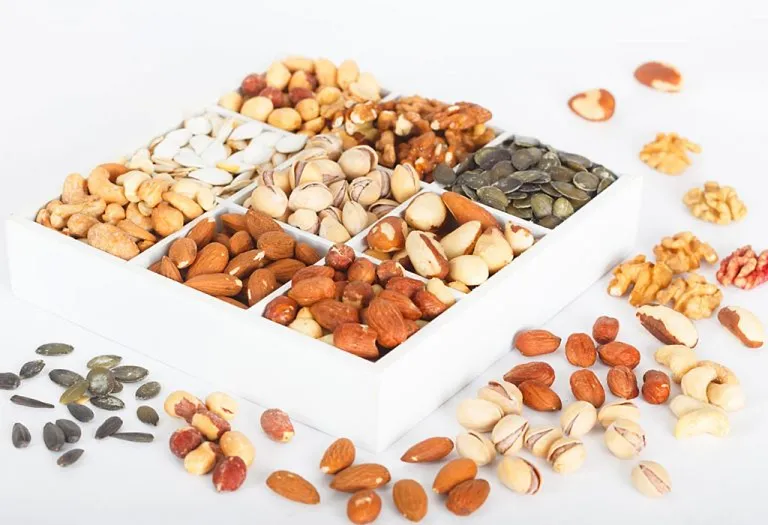

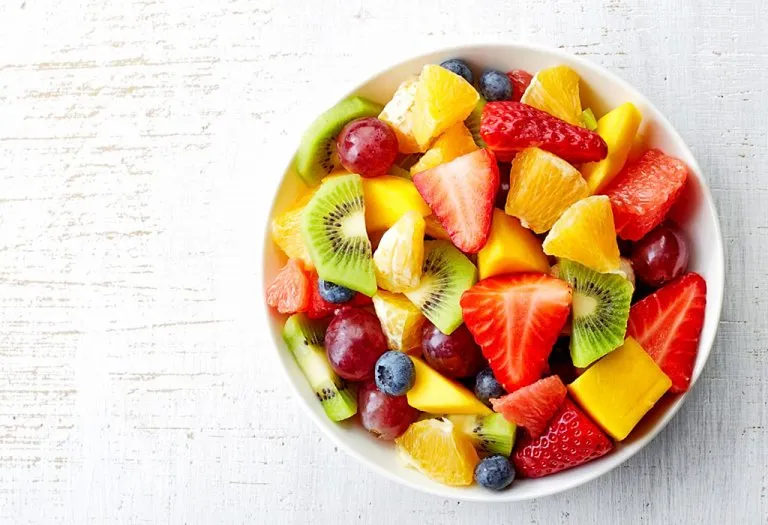


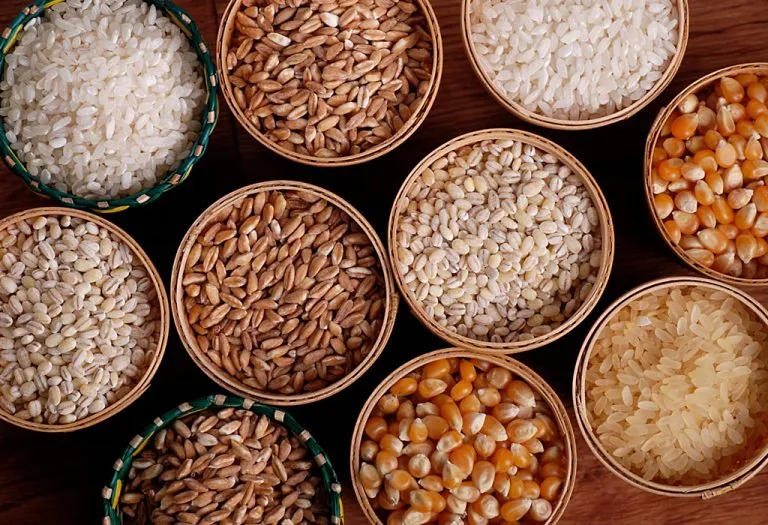

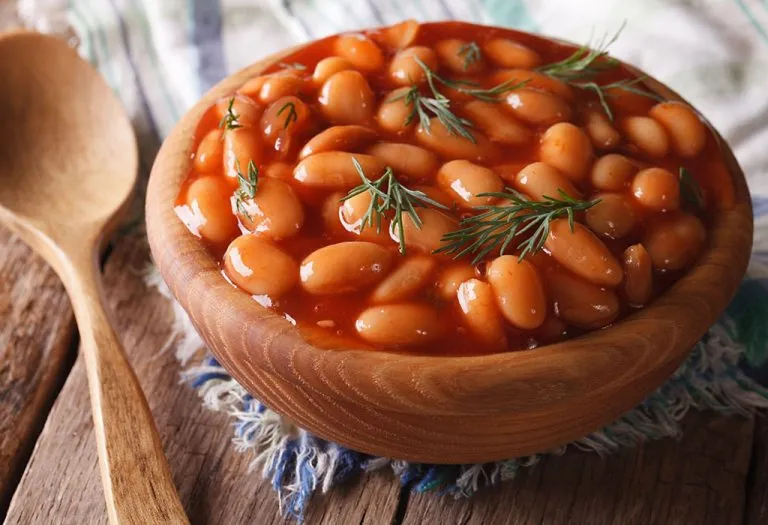
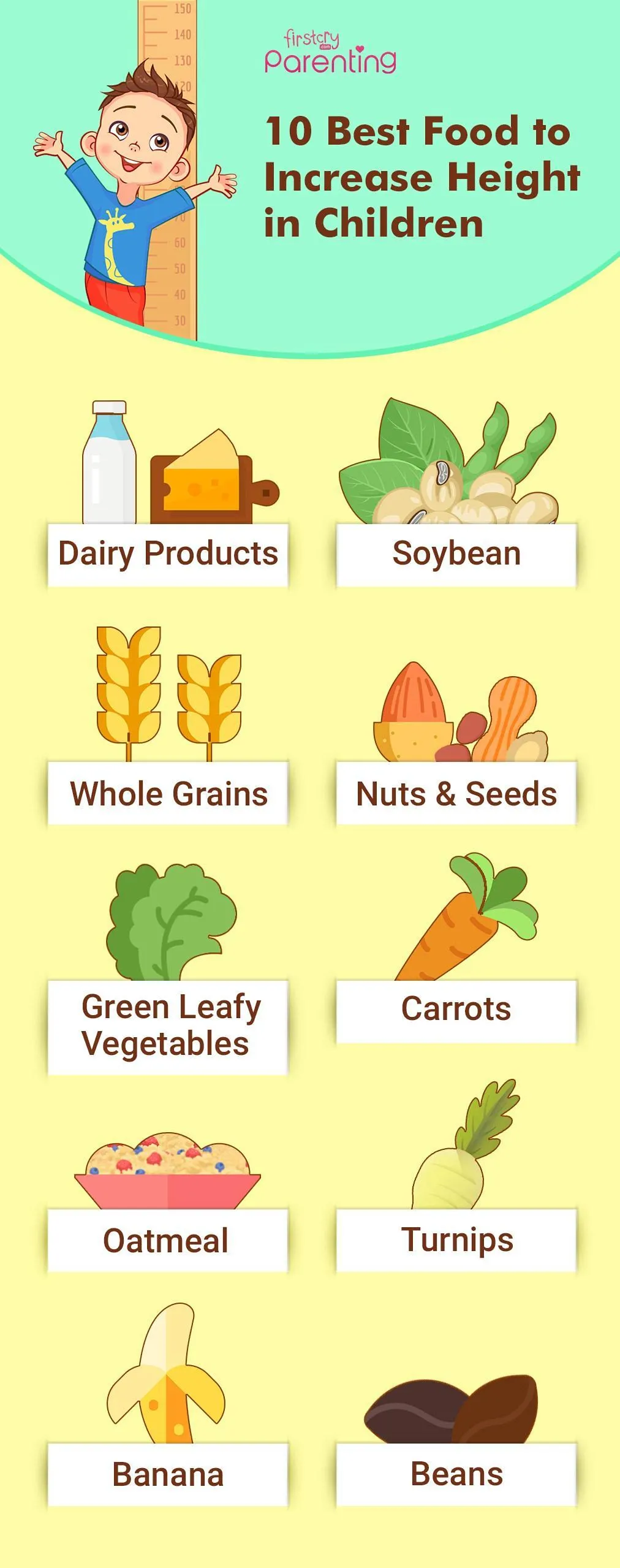







.svg)
















